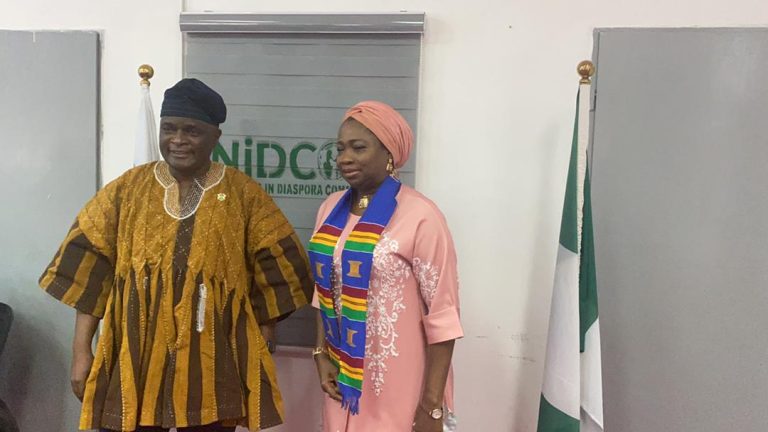Health
COVID-19 testing in Ghana not aimed at embarrassing Nigerians – Envoy

Ghana’s High Commissioner to Nigeria Amb. Rashid Bawa says the required Coronavirus (COVID-19) Testing Procedures for travellers to his country are not intended to harass and embarrass Nigerians.
The Ghanaian envoy said this during a courtesy call on Mrs Abike Dabiri-Erewa, Chairman/CEO, Nigerians in Diaspora Commission (NiDCOM) on Tuesday.
His visit was against the backdrop of alleged maltreatment of a Nigerian who tested negative to COVID-19 in Dubai only to test positive on arrival in Ghana.
The envoy pointed out that while the COVID-19 Polymerase Chain Reaction (PCR) test was mandatory, Ghana would not maliciously produce COVID-19 positive test results for visitors, especially Nigerian visitors.
Bawa expressed concern about the increasing number of underage Nigerian girls being trafficked to Ghana, saying that more should be done to prosecute the syndicate behind such dastardly act.
The high commissioner acknowledged that both countries have in recent times experienced some challenges, in spite of the long-standing bilateral relationship between them.
He added that one of such challenges was the tension between Nigerian and Ghanaian traders.
According to him, a Memorandum of Understanding (MoU) has been signed between both countries’ ministers of trade towards enthroning peaceful trade relations.
He added that a Joint Task Force was also set up to further monitor the situation.
The envoy stated that both countries will stop at nothing to fish out perpetrators of cybercrime and syndicates trafficking Nigerian female minors from Nigeria to Ghana for prostitution.
He commended Dabiri-Erewa for the efforts she is making in projecting Nigerian diasporas as important contributors to development in Nigeria.
He expressed the desire to see that a similar diaspora commission is replicated in his home country.
Receiving the Ghanaian envoy in her office, the NiDCOM chairman agreed with Bawa that although the COVID-19 test was a necessary requirement for visitors to Ghana, Ghanaian authorities “must ensure that visitors are treated with dignity, fairly, and humanely”.
Speaking on cybercrime and human trafficking, she urged relevant agencies such as the National Agency for the Prohibition of Trafficking in Persons and the Economic and Financial Crimes Commission to work closely with their Ghanaian counterparts to treat the few fraudulent Nigerians in Ghana creating a bad image for their country and causing problems in the host country accordingly.
Dabiri-Erewa acknowledged the hardwork and diligence of numerous Nigerians living and doing business in Ghana.




 Davido's Net Worth & Lifestyle
Davido's Net Worth & Lifestyle 
